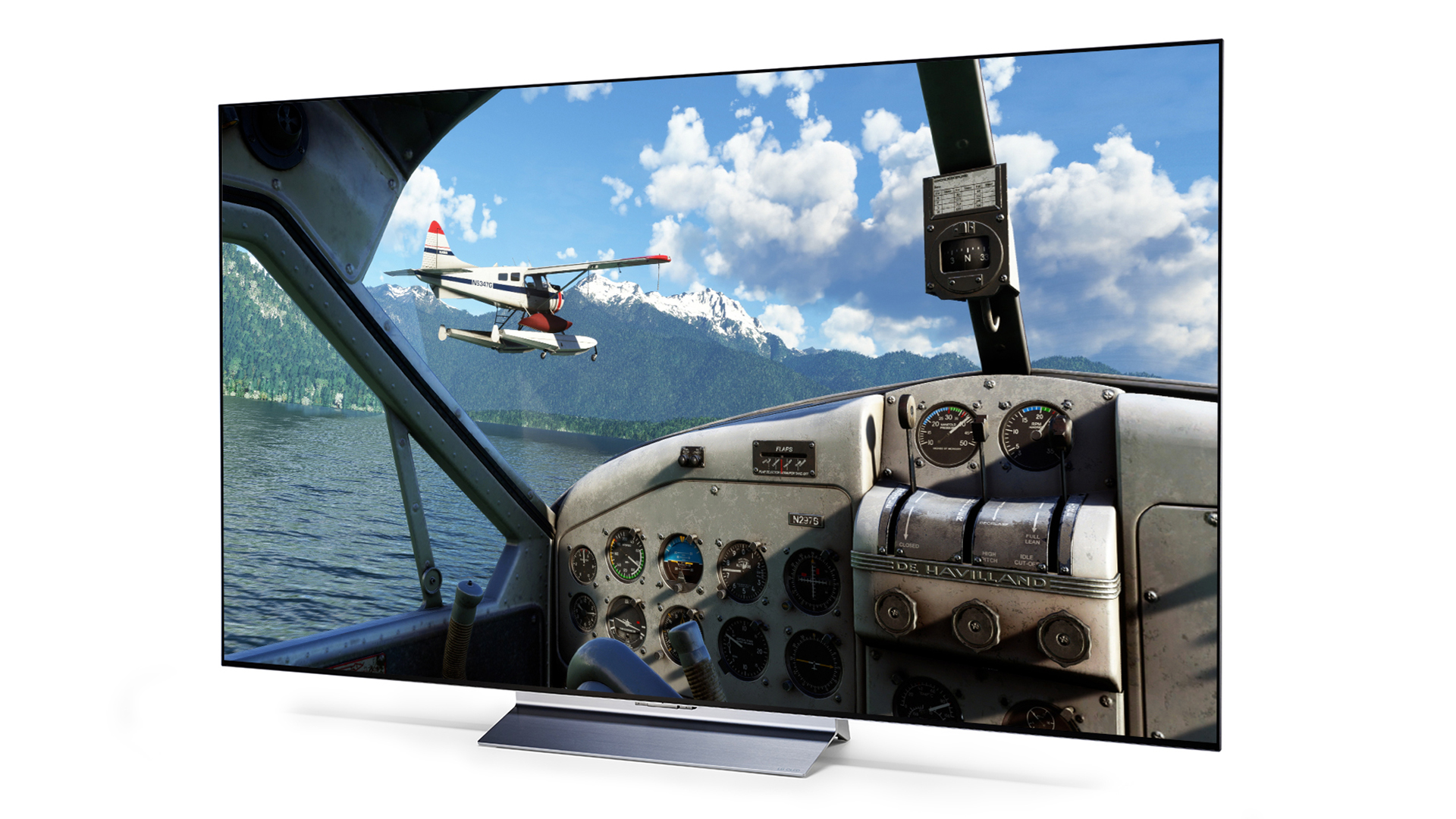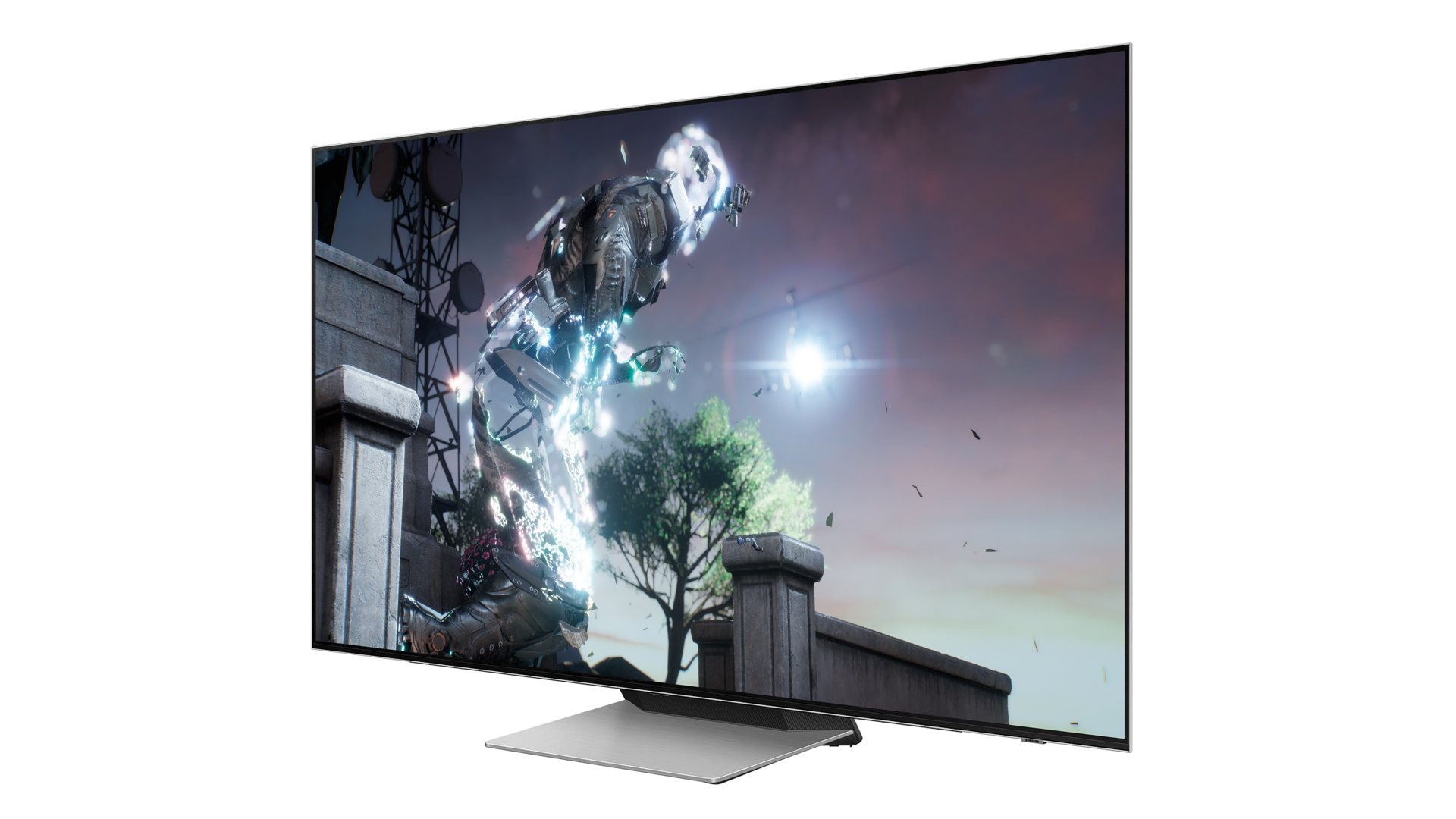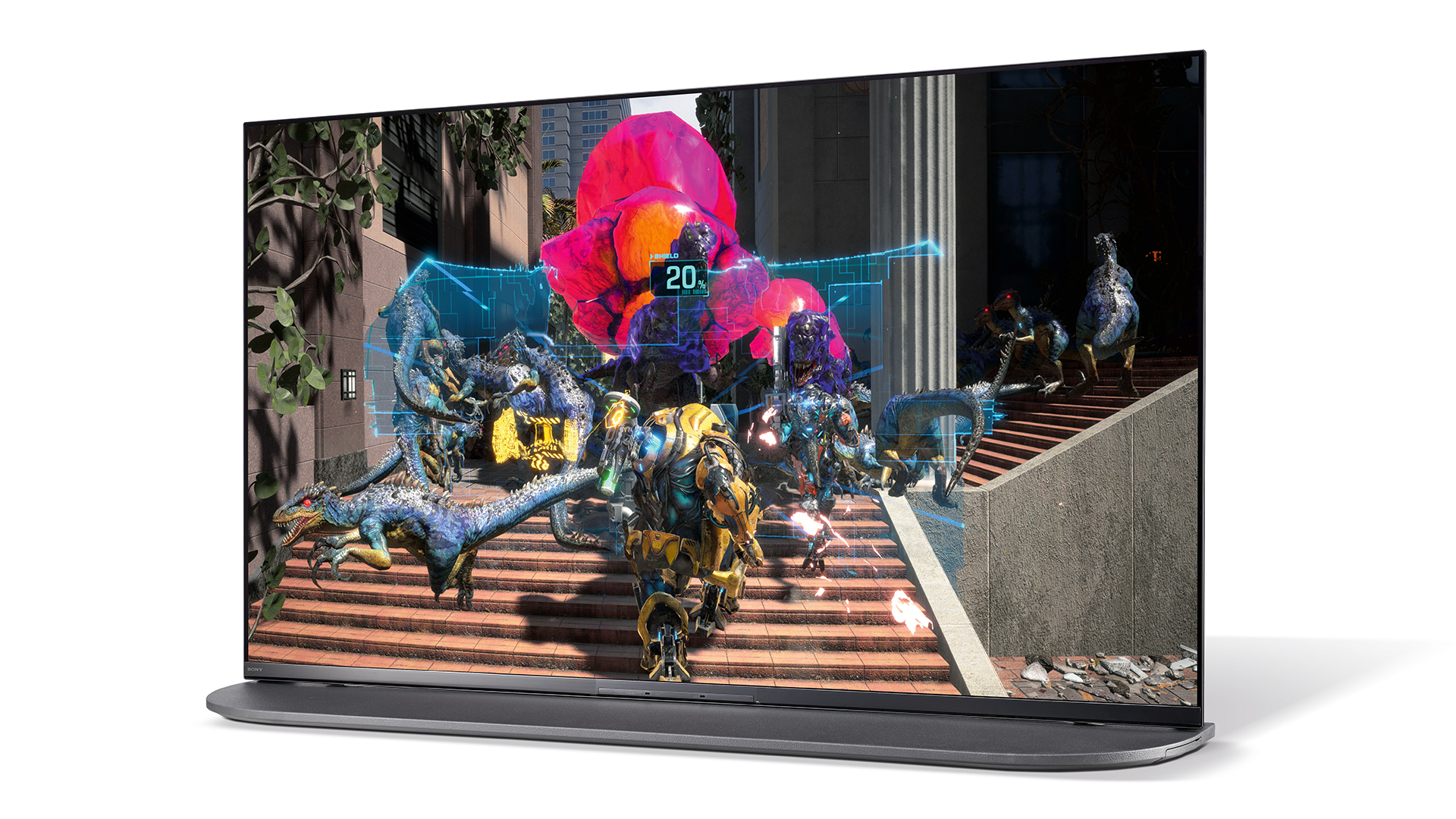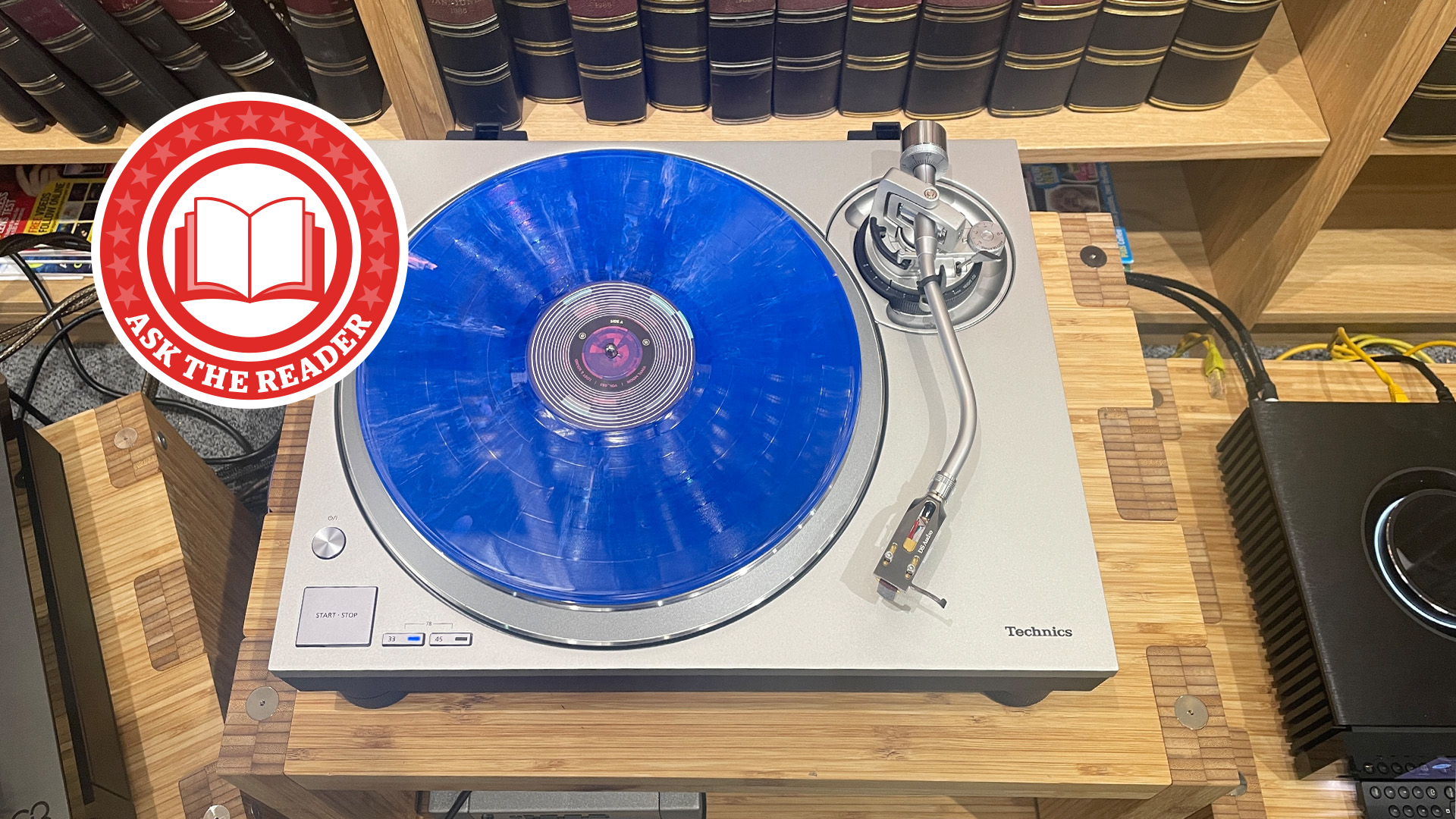If you're buying a gaming TV, you might want to wait until 2023
A new MediaTek chip means LG will no longer be the obvious choice

Since the launch of the PS5 and Xbox Series X, gamers looking for the best TV to make the most of their next-gen console and/or gaming PC have had, in my opinion, an easy decision: just buy an LG OLED.
Since the start of 2019, when the new consoles were but twinkles in the eyes of their respective manufacturers, OLEDs from the C series upwards have boasted four HDMI 2.1 sockets that support the most demanding 4K/120Hz signals. The company has remained ahead of the game ever since, delivering new gaming features such as VRR and ALLM long before they were actually needed.
Samsung is the brand that’s run it closest, with its top QLED models also having featured four HDMI 2.1 inputs for yonks and gaming feature support being delivered promptly and comprehensively. Local dimming takes a bit of a hit in Game mode, though, and the perfect blacks and genuinely stunning contrast of an LG OLED are preferable, at least to me.
What about Samsung’s new QD-OLED, the S95B? Now that’s an exceptional gaming TV, but recent reports of a firmware update creating serious issues in VRR are a bit worrisome (I confess that we don't currently have a sample in stock so haven't been able to check this ourselves). It also, like every other Samsung TV, lacks support for Dolby Vision, and Dolby Vision gaming, which is offered by the Xbox Series X, is really lovely with certain games.
Even so, I will happily accept that the S95B QD-OLED or a high-end QLED are excellent gaming TVs – I’ve lived with many of the latter over the years – but I just believe that an LG OLED is the most ‘correct’ choice.

So what about all of the other manufacturers? Whereas LG and Samsung produce the chips within their TVs, almost without exception every other manufacturer uses MediaTek chipsets, and there’s no commercially available MediaTek chipset that supports more than two HDMI 2.1 sockets.
Is having just two HDMI 2.1 sockets a huge deal? Not for everyone, no, but it is worth pointing out that in every case I’m aware of, one of those HDMI 2.1 sockets is also the eARC port, so if you need that in order to output sound to a soundbar or AVR, you’re going to have just one top-notch input left for your console or PC. Again, that won’t be an issue for many, but even if you have just a PS5 now, are you sure you won’t also want an Xbox Series X or gaming PC one day? What if the Nintendo Switch’s successor uses HDMI 2.1?
The latest hi-fi, home cinema and tech news, reviews, buying advice and deals, direct to your inbox.
Even those MediaTek-based TVs that do feature HDMI 2.1 inputs generally have to get creative if they want to support 4K/120Hz, with other features having to be disabled. None of them supports Dolby Vision above 60Hz, for example, and Sony TVs don’t support Dolby Vision gaming at all (well, you can game in Dolby Vision, but input lag is unplayably high).

Next year, though, everything is going to change. MediaTek recently announced its new Pentonic 1000 chip, which supports four HDMI 2.1 sockets and will apparently start to appear in TVs at the start of next year. This chip also supports new features such as Dolby Vision IQ with Precision Detail and even 4K 144Hz with VRR (which isn’t a factor for consoles yet but is for some lucky PC gamers). And while 4K 120Hz with Dolby Vision isn’t specifically mentioned in the spec sheet, there’s no obvious technological reason I can see that it won’t be supported.
What that means is that January's CES 2023 should be jam-packed with TVs that support every gaming feature possible across all four of their HDMI inputs, and that’s going to give spec-hungry gamers a lot of choice.
To be clear, I’m certainly not saying that the only reason to buy an LG OLED for gaming has been the spec sheet and I think there’s a strong chance that 2023’s LG C2 and G2 replacements remain the best gaming TVs, but it’s certainly not guaranteed. I’m personally very excited by the prospect of a Sony QD-OLED that has all of the gaming specs of an LG OLED, and who knows what other brands might have QD-OLED TVs with new MediaTek chips up their sleeves? How about a Philips Ambilight TV with every gaming spec across all four HDMIs? Then there’s Samsung’s S95B successor, assuming there is one. Will it support Dolby Vision, and therefore Dolby Vision gaming? I don’t think it’s likely (something about hell freezing over springs to mind), but you never know.
In summary, those in the market for a gaming TV might want to consider waiting until 2023 when there’ll likely be a whole load more choice. That said, waiting’s hard, and those LG C2 and Samsung S95B prices have been mighty tempting of late…
MORE:
These are the best gaming TVs you can buy right now
Torn between LG OLEDs? Check out the LG C2 vs LG G2
And here's our 4K/120Hz explainer
Tom Parsons has been writing about TV, AV and hi-fi products (not to mention plenty of other 'gadgets' and even cars) for over 15 years. He began his career as What Hi-Fi?'s Staff Writer and is now the TV and AV Editor. In between, he worked as Reviews Editor and then Deputy Editor at Stuff, and over the years has had his work featured in publications such as T3, The Telegraph and Louder. He's also appeared on BBC News, BBC World Service, BBC Radio 4 and Sky Swipe. In his spare time Tom is a runner and gamer.

